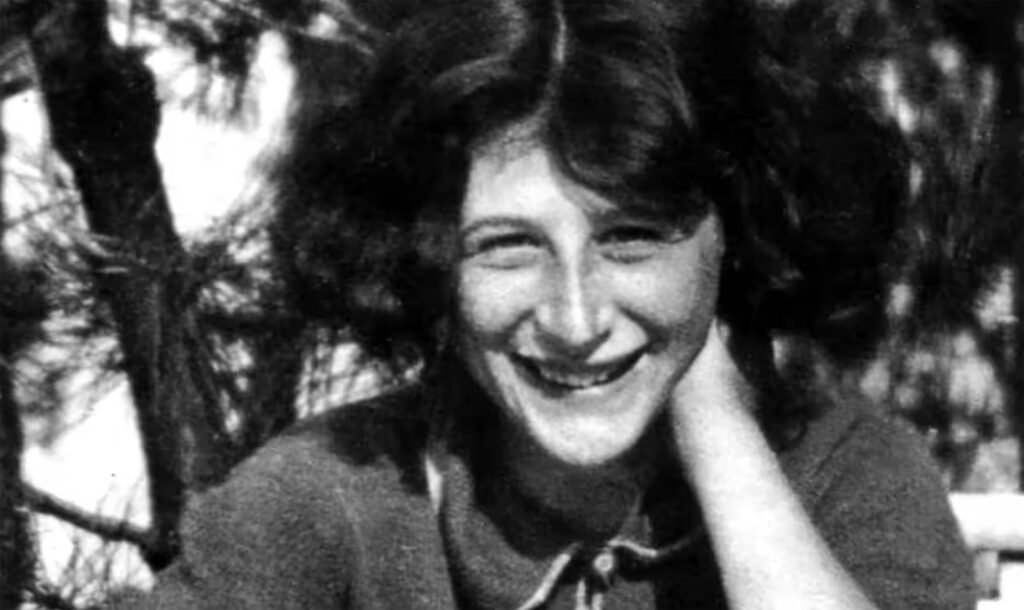
Nero fiddled while Rome burned. The saying takes on new meaning after the hottest July ever, devastating wildfires in Greece and Canada, and the declaration by the UN secretary general, António Guterres, that we’ve left behind “global warming” for “global boiling”.
But this time our Neros – AKA governments – aren’t the only ones shirking their responsibilities. What are the rest of us doing while the world burns?
Feel helpless yet? Me too. The climate crisis calls for a radical rethink of our cushy, carbon-heavy lives and our collective willingness to make sacrifices for future generations. But raised in a world of comfort and convenience, I get annoyed when there’s no wifi. I don’t do sacrifice. I need someone to show me how
Simone Weil, the French philosopher, political activist and not-quite-Catholic mystic, died 80 years ago. Although known for her work on attention and affliction (very basically: extreme, dehumanising suffering), Weil wasn’t one for abstract theorising. Hers was a lived philosophy demanding she put everything on the line – and with a zeal that qualified her for “secular sainthood”, as one recent biography puts it.
If anyone can offer us an earthly education in sacrifice, it’s Weil. Even if she’s a hard act to follow. Albert Camus called her “the only great spirit of our time”. She intimidated Simone de Beauvoir, her classmate at the Sorbonne (“I envied her for having a heart that could beat across the world,” De Beauvoir wrote of Weil’s distress for famine victims). I mean, as a six-year-old, Weil gave up sugar in solidarity with French soldiers during the first world war. Clearly, she was no ordinary kid.
Still, she gives us, kids of the comfortable classes, some hope. We have ideals but perhaps we don’t quite know – as she did – how to suffer for them. Even if we back urgently cutting emissions, we don’t know how to evict ourselves from what the historian Dipesh Chakrabarty calls “the mansion of modern freedom [that] stands on an ever-expanding base of fossil fuel use”.
Here’s where Weil can help. Although raised in a well-off, non-observant Jewish family, Weil gave up every advantage to stand in solidarity with marginalised people. Between teaching stints, she worked as a labour organiser and in factories and on farms to better understand working peoples’ lives, though she was ill-suited to manual work.
Slight and sickly, migraine-prone and extremely near-sighted, Weil also wanted to fight in the Spanish civil war and join the French resistance during the second world war. She was stymied both times: at Aragon, she badly burned her foot, dashing any dreams of supporting the Republicans. And Charles de Gaulle, leader of the Free France forces, thought Weil “insane” for her plan to parachute nurses on to the battlefield. Weil ended up dying of tuberculosis at 34, hastened by her refusal to eat, again in solidarity with the French under Nazi occupation.
Weil’s hapless attempts to make a difference channel the naïve idealism of every first-year, middle-class arts student in, like, forever. A sensitive soul, she nonetheless wanted to fight fascists of her time. She sought martyrdom but was constantly frustrated by her own limits – and her parents, who were forever bailing Weil out of her latest adventure in thwarted heroics. (She must have been an absolute pain to live with.)
But Weil gives hope to anyone made soft by modern life.
The gulf between saints and ordinary people may be huge, but if the spirit of Weil beats in the heart of every earnest do-gooder who wants to change the world, then so does the capacity to give up the things we feel we’re owed – like, say, a carbon-intensive consumer-driven lifestyle.
And I don’t just mean that holiday abroad or the latest device, but my dependence on my car to go short distances, or the convenience of buying meat from the supermarket, even though I know those plastic cartons will never get recycled. Heck, even my need to eat meat.
The point is: when it comes to giving up things, we need to start somewhere and do something. I may not feel built to make sacrifices, but then neither was Weil. A relatively privileged child, she could have remained comfortable. But she didn’t, which makes her our patron saint for pushing us out of our comfort zones. Even if the sacrifices we make on behalf of the planet never fully imitate her, who knows? Deciding to do without some creature comforts might yet change both us and our world.
It may be impossible to live (and believe – she’s not so secular, on closer look) as uncompromisingly as Weil. But we need our saints, if only to be inspired by them. If we’re going to survive a changing climate, a changing world, we need all the help we can get. We could do worse than read the life and work of Weil. As the philosopher Iris Murdoch said: “to read her is to be reminded of a standard”.
Justine Toh is senior fellow at the Centre for Public Christianity
… there is a good reason why not to support the Guardian.
Not everyone can afford to pay for news right now. That is why we keep our journalism open for everyone to read. If this is you, please continue to read for free. Thank you for joining us today from France.
But if you are able to, then there are three good reasons to support us today.
1. We are fiercely independent and set our own agenda, an increasing rarity in a Europe of captured, compromised media.
2. Our fearless, investigative journalism is a scrutinising force at a time when the rich and powerful are getting away with more and more, in Europe and beyond.
3. Since Brexit, we have become more, not less, European, publishing 10,000 articles a year on European issues. We’re funded by around 180,000 supporters living in Europe, from the Atlantic to the Black Sea, the Arctic to the Mediterranean, including many in France.
Help power the Guardian’s journalism for the years to come, whether with a small sum or a larger one. If you can, please support us on a monthly basis from just €2. It takes less than a minute to set up, and you can rest assured that you’re making a big impact every single month in support of open, independent journalism. Thank you.
